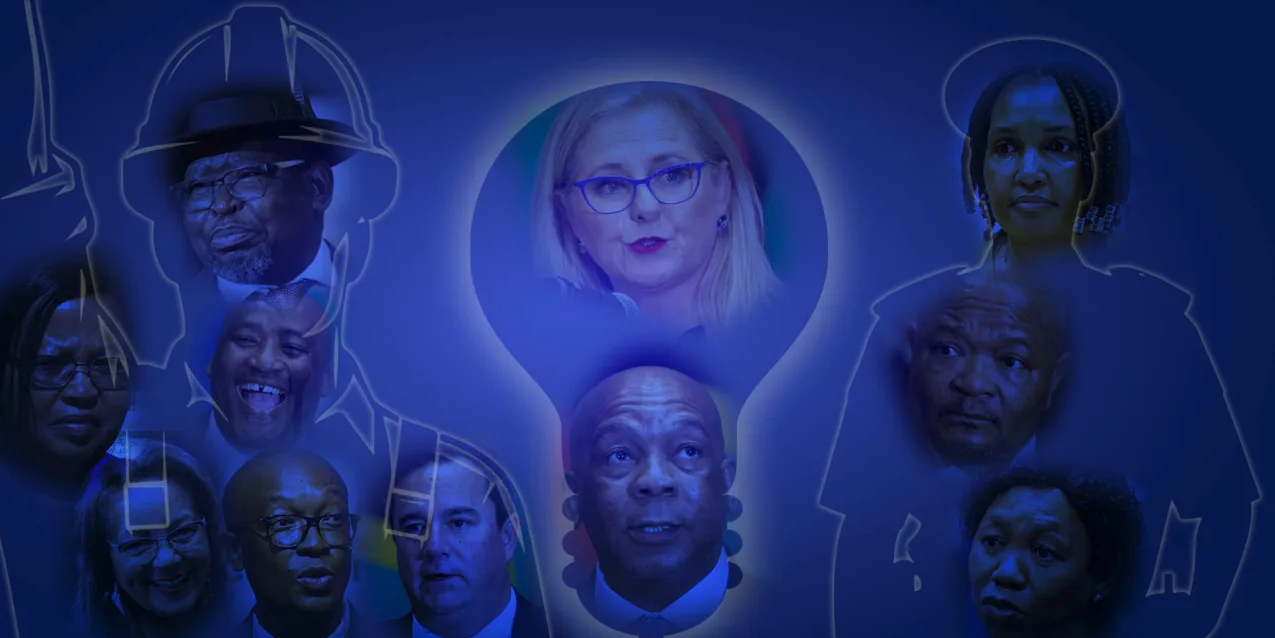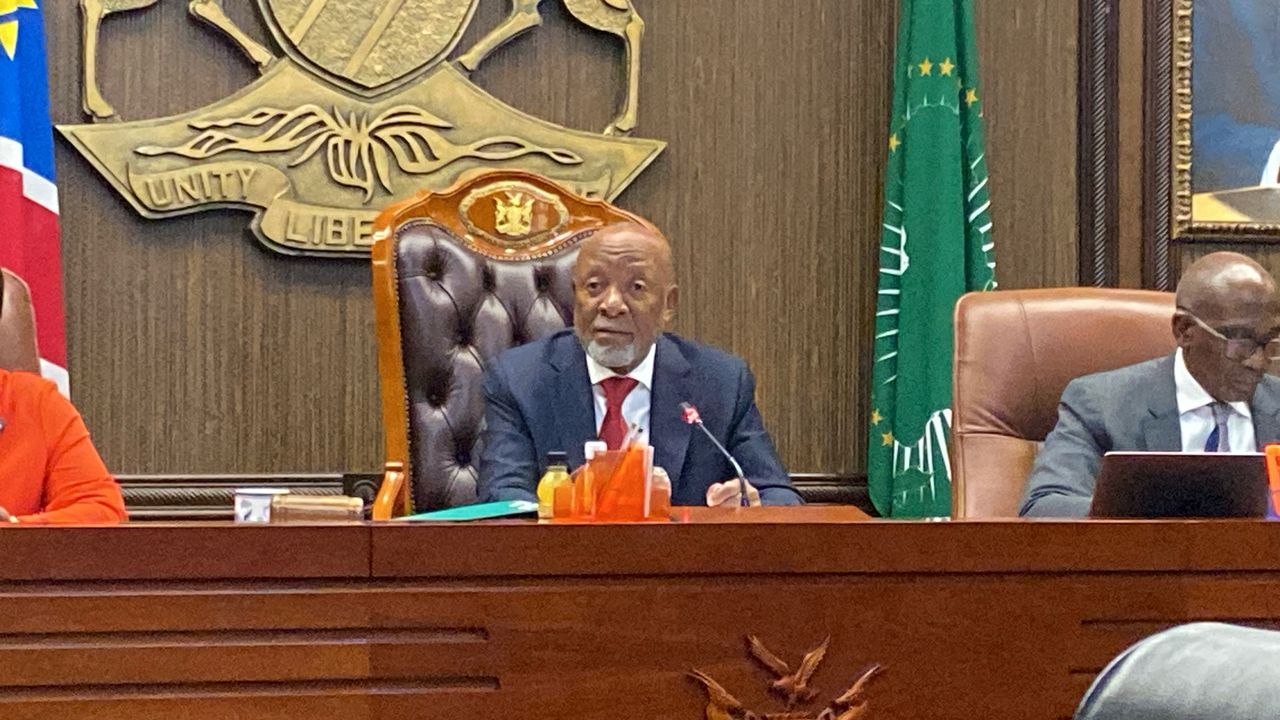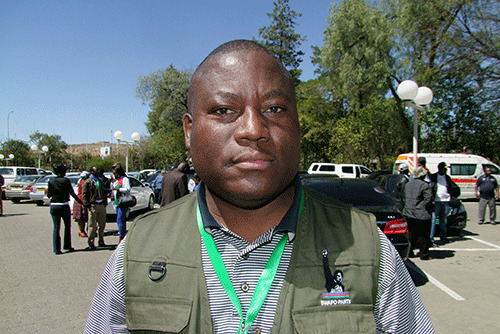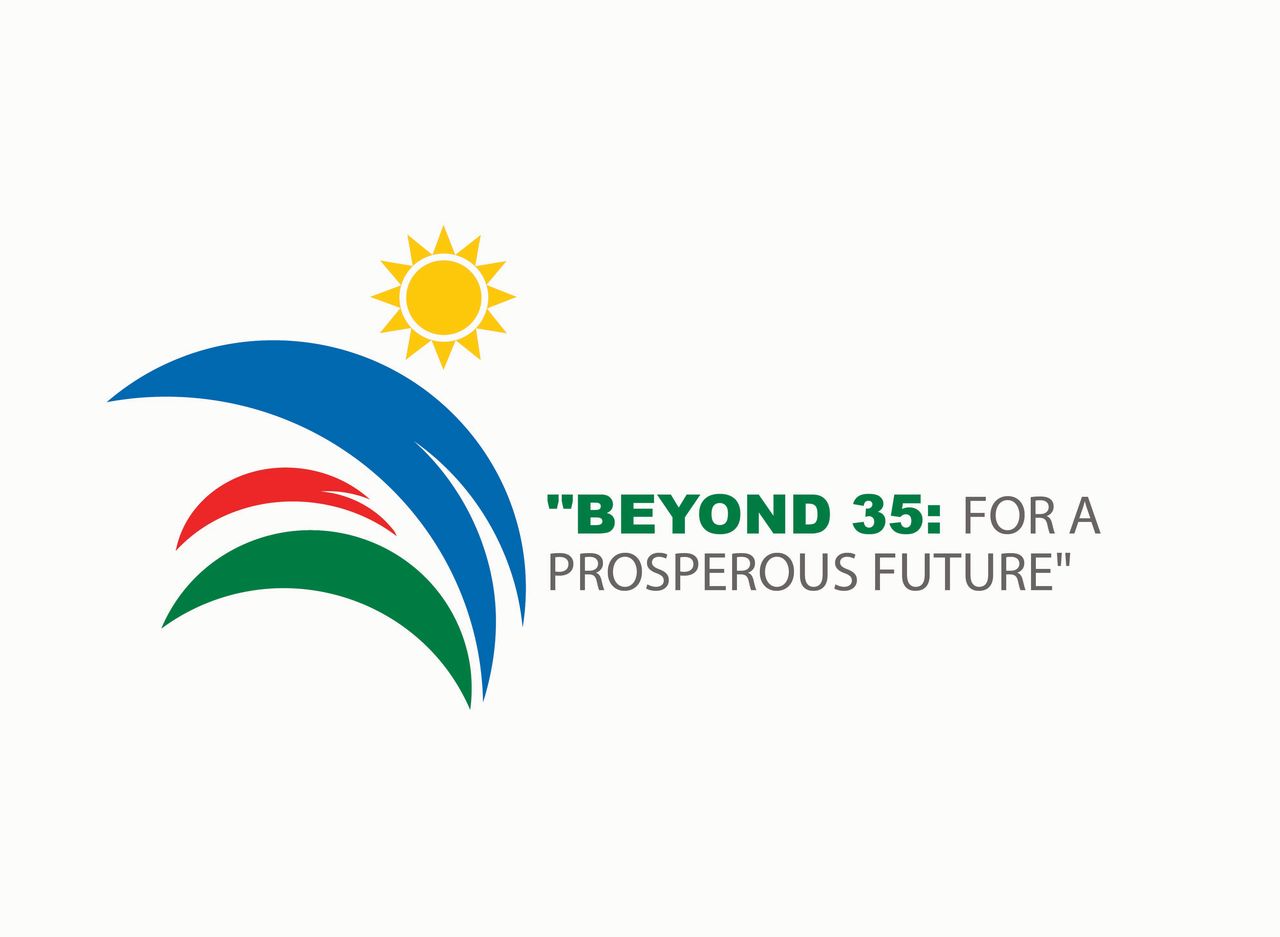The jury is still out on how the ministers in the Government of National Unity will perform, although some returnees can be judged on their past achievements, or lack thereof. We speak to those in the know.
South Africa’s Cabinet has ballooned to 32 ministers from 30, and there are now 43 deputy ministers in the Government of National Unity (GNU) as opposed to the previous administration’s 36. With the composition of the GNU showing some new faces and many old dogs, we ask: Are there new tricks up their sleeves?
“The whole idea of a Government of National Unity is that you bring as many political parties as possible together,” William Gumede, the founder and executive chairperson of the Democracy Works Foundation, said at a Daily Maverick webinar this week.
“That is different from a normal coalition because in a normal coalition you just need a majority, but in a GNU you bring in diversity because you want to bring in resources, skill sets, new ideas, new energy.
“Although you want to have as many parties as possible, it is also not very practical to appoint everyone into Cabinet positions. But there are other ways to accommodate everyone,” Gumede said.
Job creation
Jobs emerged as one of the hot-button issues of the general election, trumping 2019 electioneering touchpoints such as gender-based violence and land expropriation.
The last Quarterly Labour Force Survey before the 29 May polls revealed that South Africa’s unemployment rate rose to 32.9% in the first quarter of 2024 from 32.1% in the last quarter of 2023. The number of unemployed people has swelled from 7.9 million to 8.2 million in the same period. Youth unemployment remains stubbornly high and 59.7% of young people between the ages of 15 and 24 are now unemployed.
In the economic cluster of the new Cabinet, President Cyril Ramaphosa has embraced continuity. Finance Minister Enoch Godongwana has returned to the position he has held since August 2021. Godongwana holds an MSc degree in financial economics from the University of London, and prior to his appointment as finance minister he was the board chairperson of the Development Bank of Southern Africa.
He has two deputy ministers: David Masondo has remained in the position he has held since 2019, and is joined by the DA’s deputy federal chairperson, Ashor Sarupen.
Sarupen previously served as a member of the Gauteng legislature between 2014 and 2019, and has served as an MP on the appropriations committee since then.
Khulekani Mathe, who will replace Cas Coovadia as chief executive of Business Unity South Africa in January 2025, welcomed Godongwana’s reappointment.
“He is a minister who has proven himself … who is very open-minded and willing to work with the private sector, because he recognises that we need to use the skills, capacity and expertise that sit in the private sector to get certain things done,” said Mathe.
Clotilde Angelucci, communications and network lead at advocacy campaign Youth Capital, said: “The GNU has prioritised continuity with Godongwana. This means that we can expect a continued fiscal policy of serving debt rather than focusing on growing social and economic value. This is the concerning scenario that lies ahead of the finance cluster.
“The GNU offers an important chance to allow more voices and, hopefully, new approaches on how these challenges are tackled. But nothing will change for young South Africans until the cluster effectively prioritises the intersectional systemic challenges young people face, and urgently promotes the macroeconomic shifts we need to create an economy of economic opportunities and social value,” said Angelucci.
Another familiar figure in the public sector, Parks Tau, has made a comeback as the minister of trade, industry and competition. He replaces Ebrahim Patel, who retired after the election.
Tau was the deputy minister of cooperative governance and traditional affairs since March 2023, but he is more widely known as a former mayor of Johannesburg.
The Black Business Council (BBC) has welcomed Tau’s appointment. “Tau is fit for purpose, and the BBC is confident that he will accelerate the implementation of the socioeconomic transformation policies.
“He has his work cut out [for him], as most of the senior management positions in the department and its entities are occupied by people in an acting capacity … The department has never had a permanent director-general for more than three years,” the BBC said in a statement.
Nomakhosazana Meth, South Africa’s new employment and labour minister, is a fresh face in the Cabinet. Meth, who has an honours degree in public administration from the University of Fort Hare, was the MEC for health in the Eastern Cape since 2021 – a position she held despite no prior experience in the health sector.
The ANC performed well in the province in the provincial election, garnering 62.5% of the vote. It’s likely Meth was rewarded for this performance in her promotion to the National Assembly.
Trade union Uasa (formerly the United Association of South Africa) has welcomed Meth’s appointment, saying it believes “the new face will bring change to the portfolio, allowing organised labour to engage and bring about new ideas to tackle unemployment and improve the economy”.
Agriculture and tourism
Agriculture remains one of South Africa’s better-performing sectors. According to the Quarterly Labour Force Survey, employment gains have been made in the sector and 21,000 jobs have been added in the first quarter of 2024.
DA leader John Steenhuisen is the new agriculture minister. He has been serving as a member of the National Assembly since 2011. He has no tertiary qualifications.
Agriculture is a large portfolio, and high on Steenhuisen’s agenda will be dealing with food insecurity.
AgriSA has welcomed his appointment, saying it looked forward to a “collaborative and productive relationship” with the minister. “These appointments come at a critical juncture, and we are confident that under these ministers’ leadership, the agricultural sector will thrive and continue to be a cornerstone of the national economy,” AgriSA said in a statement.
The Good party’s Patricia de Lille is back as tourism minister, a position she has held since 2023. Previously, De Lille had been the minister of public works and infrastructure from 2019 to 2023.
The tourism sector shed more than 320,000 jobs in 2020, but it has since been on a steady uptick after the pandemic.
David Frost, chief executive of the Southern Africa Tourism Services Association, has welcomed De Lille’s reappointment.
“Her leadership has been instrumental in navigating our industry through challenging times and we’re excited about the prospects of building on this solid foundation,” he said.
Powering up
The power crisis has hampered employment opportunities in years past. But the first half of 2024 has been marked by a period of substantially less load shedding compared with the same period last year.
More than a month after the general election, the lights are still on. On Thursday, 4 July, the country marked 100 consecutive days without rolling power blackouts.
Ramaphosa first turned to his trusted aide, Kgosientsho Ramokgopa, to get us out of the energy bind in the March 2023 Cabinet reshuffle.
In the GNU Cabinet, Ramokgopa has kept his job and is now the minister of electricity and energy, after energy was removed from Gwede Mantashe’s portfolio.
Ramokgopa is one of the Cabinet’s most highly qualified people with three degrees – a PhD in public affairs, and degrees in civil engineering and public administration, according to his LinkedIn profile.
He had been Tshwane’s mayor from 2010 to 2016, and was at the centre of several governance scandals – in particular the botched prepaid electricity meter deal.
Energy analysts have welcomed Ramokgopa’s ministerial appointment, as well as the merging of energy and electricity into one portfolio.
Monique le Roux, chief engineer at Stellenbosch University’s Centre for Renewable and Sustainable Energy Studies, said she was “positive about the appointment of Ramokgopa and hopeful that we will see meaningful change under his leadership”.
She added: “Even though there is a lot of work that needs to be done and many challenges that require urgent attention, Ramokgopa has taken the time to try to understand the challenges and to engage with various sectors, experts and industry bodies to get the country out of the energy crisis.”
When Ramokgopa was first appointed as electricity minister, he had no powers. With more authority now, Ramokgopa told Daily Maverick he would “aggressively drive” the renewable energy programme.
“We are not going to hold back on our intentions to ensure we onboard renewables,” he said.
Minerals and petroleum
In a surprising move, Mantashe has returned as minister of mineral and petroleum resources. Under the sixth administration, Mantashe was seen by industry as a major hurdle to ending rotational power cuts and reforming the energy market.
Energy analysts and industry experts are less enthusiastic about Mantashe’s return to the mining portfolio. But Mantashe insists he is the best person for the job.
“It is a portfolio I know. I will know where to start and where to move to. I am not going to be confused with the portfolio. Both minerals and petroleum – I know both. Urgently we must form the national petroleum company. We must revive PetroSA, we must make the exploration fund work, we must make the fund for artisanal miners work. Those are the four real urgent priorities,” he told Daily Maverick on 3 July.
(In)security cluster
Deft hands are needed to curb South Africa’s rampant crime. The job of police minister is key in a country that is wrestling with violent crime and lawlessness, ranging from money laundering and gangsterism to extortion and mass killings.
Senzo Mchunu is the new police minister, taking over from Bheki Cele. Cele’s removal from the position comes after years of calls from the opposition, civil society and community policing forums (CPFs) for him to resign because of his dismal performance.
Under Cele’s watch, violent crime rates have soared, and 7,710 people were murdered in the fourth quarter of 2023. CPFs and anti-crime activists have urged Mchunu to improve crime intelligence capacity to combat, among other things, gang violence, corruption and extortion.
Mchunu’s previous posts include minister of public service and administration, and water and sanitation. He also served as premier of KwaZulu-Natal from 2013 to 2016.
“The minister of police is a very powerful portfolio. It’s the only ministry that the Constitution actually provides for,” said Gareth Newham, head of justice and violence prevention at the Institute for Security Studies.
“And we have not had a good history of ministers of police. The approach since the start of democracy has been for the president to appoint a minister who he has a very close relationship with, or who is very loyal to him – personally and politically.”
Newham said it was “encouraging” that Mchunu is very close to the President, “and he seems to have been quite thoughtful in his previous portfolio. He seems to have a much more considered approach to things; he seems to want to understand what the issues are.”
The Ministry of Justice and Constitutional Development is now separate from the Ministry of Correctional Services, which was given to Freedom Front Plus leader Pieter Groenewald. Thembi Nkadimeng is the country’s new justice minister. Prior to her appointment, she served as minister of cooperative governance and traditional affairs from March 2023. Unlike her predecessor, Ronald Lamola, she has no legal experience.
But Nkadimeng seems to understand the synergy that is needed from the ministries in the security cluster, telling Daily Maverick that partnerships are needed between departments to ensure “we aim to prevent [crime] through all government does. Streetlights must be working, roads must be better … to ensure that justice is served for every South African.”
The most perplexing appointment of them all is former basic education minister Angie Motshekga’s appointment as minister of defence and military veterans.
When Daily Maverick spoke to Motshekga on 3 July about her plans for her department, she said she was still waiting for handover reports. “Ask me after a week what my plans are,” she said.
Motshekga was at the helm of basic education for 15 years – a period in which she failed to eradicate pit latrines from schools or significantly improve literacy rates. She holds a master’s degree in education and a Bachelor of Educational Science from Wits University.
“I fear for what is going to happen to defence, and there’s such an opportunity in defence for imagination … But I fear with Motshekga, who just came from education and did a terrible job, we’re not going to get that,” said Gumede.
“The ANC’s been in power for 30 years. Often, it has had the same people and recycled people, so many of the same people get reappointed and recycled and so on. But they haven’t delivered and that is why the ANC got to the 40% floor. So one would think you would now appoint totally different people, because to reappoint the same people who didn’t perform in the last 30 years doesn’t make sense,” he said.
Both the police and defence ministries have two deputy ministers. UDM president Bantu Holomisa is a deputy to Motshekga in the Ministry of Defence and Military Veterans. Holomisa is back in the GNU environment, having been part of it in 1994, when he served as deputy minister of environment and tourism.
According to Newham, the level of influence that deputies have is determined by the ministers. “If the minister wants to use them in a way that enables them to have authority and influence, then he or she can. Otherwise, they don’t have any power; they are largely ceremonial,” said Newham.
Motshekga’s second deputy minister is former Jacob Zuma ally and president of the South African National Civic Organisation Richard Mkhungo. After Zuma formed the MK party, Mkhungo changed allegiance and supported Ramaphosa, which likely explains his promotion to the National Assembly.
Stay informed with The Namibian – your source for credible journalism. Get in-depth reporting and opinions for
only N$85 a month. Invest in journalism, invest in democracy –
Subscribe Now!










